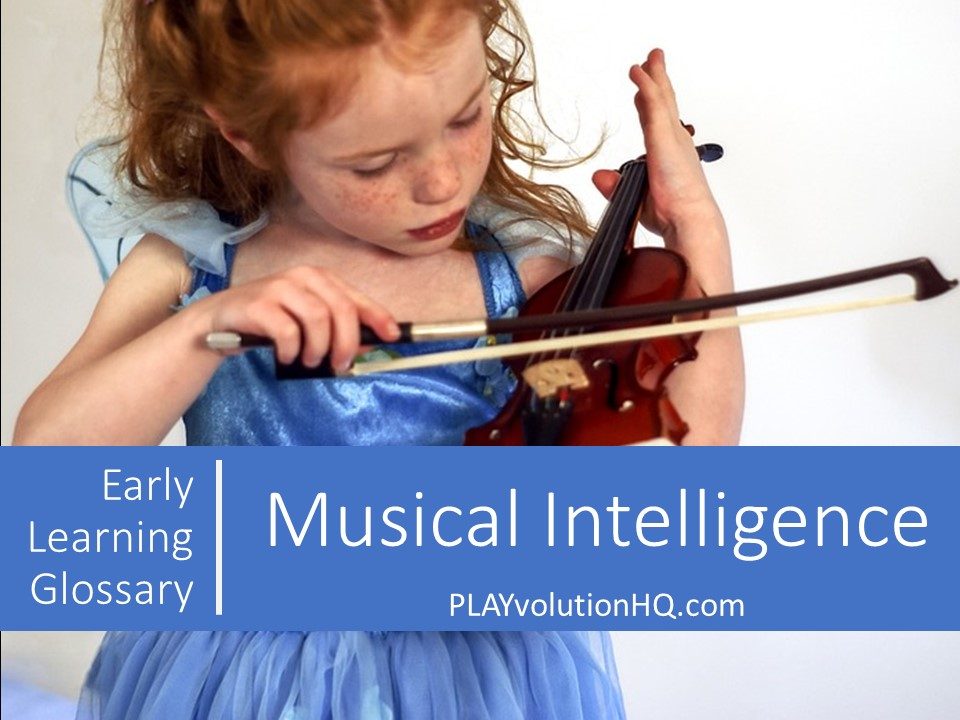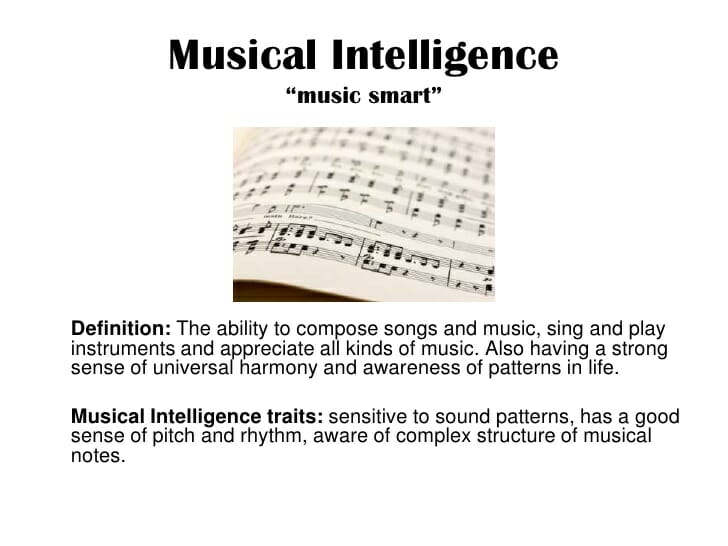
Table of Contents
About Musical Intelligence
Musical intelligence is one of the nine intelligences in Howard Gardner’s theory of multiple intelligences, introduced in 1983. It’s the ability to perceive, understand, create, and express music, including rhythm, pitch, melody, and timbre. People with strong musical intelligence often notice sound patterns and excel at playing instruments, singing, or composing.
This isn’t just for professionals—everyday acts like humming a tune or tapping a beat show it too. Research backs this as a distinct cognitive skill, though some debate if it’s truly an “intelligence” or more of a talent.
How It Starts And Works In The Brain
Musical intelligence often begins early. Babies respond to lullabies or drumbeats even before birth, with studies showing sound recognition in fetuses by 4-5 months gestation. This builds a foundation for rhythm and melody sensitivity.
In the brain, it’s a team effort. The auditory cortex handles sound, motor regions kick in for playing instruments, and the amygdala ties in emotions. This mix makes music both a mental and feeling experience.
Boosting The Mind
Engaging with music can sharpen other skills. Research links it to better memory, attention, and spatial abilities, especially in children playing instruments. There’s also evidence it might help with math, as note timing teaches patterns—though experts still debate if music directly causes these gains.
It’s not just about smarts—it’s emotional too. Music can lift moods and spark creativity, showing its broad impact on the mind.
Music And Culture
Across the world, musical intelligence shapes culture. Think of classical symphonies, jazz solos, or indigenous chants—they all carry history and identity. It’s a way humans connect, so no words are needed.
People with this skill shine as composers, performers, or sound engineers. But it’s broader—music therapists use it to help stroke patients recover speech, and teachers use songs to make lessons stick. It’s a universal tool for expression and understanding.

Contribute content to Playvolution HQ
Brought to you by Explorations Early Learning
Thoughts On This Entry?
I’d love to hear your thoughts on improving this entry and suggestions for additional glossary additions in the comments below. You can also contact me with comments or concerns.
Browse Trainings
Post Author
Jeff Johnson is an early learning trainer, podcaster, and author who founded Explorations Early Learning, Playvolution HQ, and Play Haven.


Leave a Reply